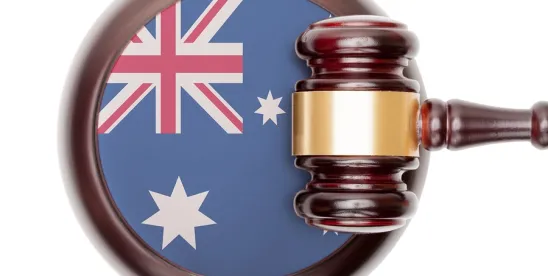As the new Parliament prepares to sit, it is useful to consider the new Labor Government’s key focus areas for competition policy (click here and here). These changes are intended to further strengthen consumer and small business rights and deter competition law breaches.
Labor’s appointment of an economics professor, Dr Andrew Leigh, to Assistant Treasurer (with responsibilities for competition policy) signals its resolve to implement significant reforms to competition and consumer laws.
The Labor Government has not yet commented specifically on its appetite for merger reforms. However, in line with its view that Australia has a “competition problem”, it may well support a stricter, mandatory merger clearance regime as was advocated by former ACCC Chair, Rod Sims. Only time will tell whether this is indeed the case.
Increasing maximum penalties from AU$10 million to AU$50 million for anti-competitive behaviour
While Australia already has significant maximum penalties for competition and consumer law breaches (including up to 10% of company’s turnover), the OECD found (in 2018) that in fact, penalties in Australia are substantially lower than in comparable jurisdictions.
With this background and Labor’s view that “Australia has a competition problem”, the new Government is seeking to deter anticompetitive conduct by a 5 fold increase in the maximum penalty.
This may also trigger greater compliance efforts, and perhaps more businesses considering immunity / cooperation with the ACCC, triggering more investigations/court proceedings – as well as greater use of the authorisation and notification seeking protection for conduct that may have economic benefit.
It is unclear whether this will apply to breaches of the Australian Consumer Law.
Introducing a ‘Super Complaint’ function within the ACCC
This is intended to allow select consumer groups such as CHOICE and business sector advocacy groups to direct the ACCC to investigate serious complaints of alleged breaches of competition and consumer laws. It is inspired by similar mechanisms in the UK where the Competition and Market Authority must set out how it proposes to progress a complaint made by designated consumer groups within 90 days of receipt of the complaint.
The ACCC previously opposed this mechanism as it considered the ACCC already had appropriate complaints capture processes.
If implemented, this may lead to market studies conducted by the ACCC (as has occurred in the UK) and may increase the frequency of ‘industry wide’ crackdowns/enforcement.
Making unfair contract terms (UCT) illegal
The Labor Government specifically noted its support for making UCT illegal and broadening its coverage to small businesses with fewer than 100 staff or a turnover of less than AU$10 million
Businesses should review their contractual arrangements (having regard to the broader cohort of counterparties that are likely to be covered by the new UCT regime).






 />i
/>i

